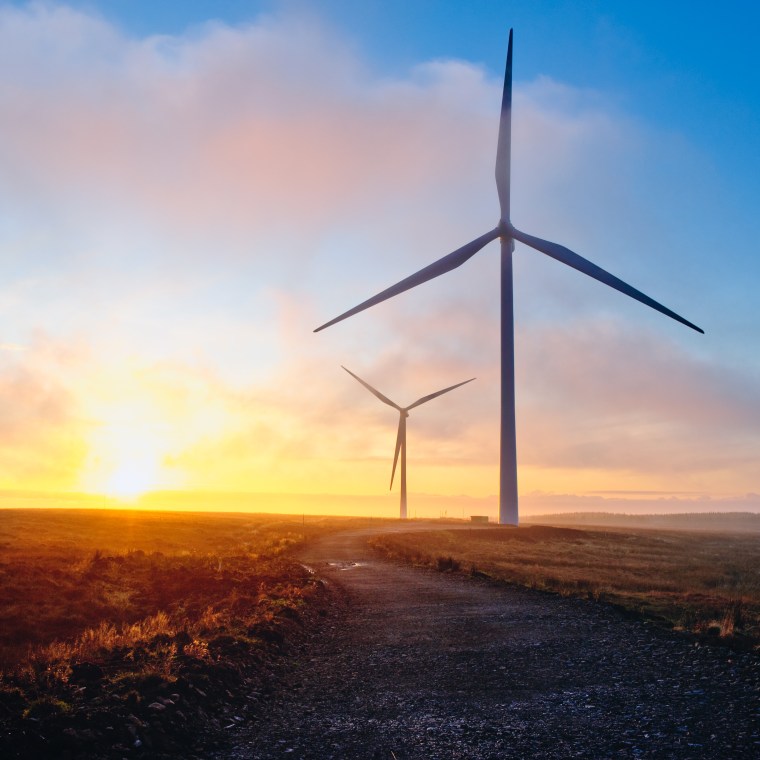It was earlier this year when Donald Trump told congressional Republicans that unidentified people believe the noise generated by wind turbines "causes cancer." The tragically confused president added that the audience should trust that he knows what he's talking about because, as he put it, "I know a lot about wind. I know a lot about wind."
He does not know a lot about wind.
A month later, Trump insisted that homeowners who use wind power can't watch television when the skies are calm. This isn't how energy policy works, but the president has convinced himself of his own expertise.
Over the weekend, the Republican returned to the subject yet again during remarks to a gathering of far-right students, who heard Trump declare, "You know, I know windmills very much. I've studied it better than anybody." The president then put his vast education on wind power to use, offering his young audience a detailed lesson:
"They're made in China and Germany mostly -- very few made here, almost none. But they're manufactured tremendous -- if you're into this -- tremendous fumes. Gases are spewing into the atmosphere. You know we have a world, right? So the world is tiny compared to the universe. So tremendous, tremendous amount of fumes and everything."
I've read this a few times, trying to make sense of the presidential word salad, and I simply can't figure it out. The references to "fumes" appear to refer to emissions from turbine manufacturing, though by that reasoning, Trump should be concerned about carbon emissions in general. (He's not.)
As a Washington Post analysis explained, "[I]t’s awfully cynical to argue that purported air pollution from manufacturing wind turbines is more problematic than the warming that results from unchecked burning of fossil fuels. Even assuming there are dangerous fumes emitted from making wind turbines, the scale wouldn’t compare to the international emission of carbon dioxide and methane."
He went on to insist that wind turbines create "bird graveyards" -- he's wildly overstating the real-world effects -- before adding:
"I've seen the most beautiful fields, farms, fields -- most gorgeous things you've ever seen, and then you have these ugly things going up. And sometimes they're made by different companies. You know, I'm like a perfectionist; I really built good stuff. And so you'll see like a few windmills made by one company: General Electric. And then you'll see a few made by Siemens, and you'll see a few made by some other guy that doesn't have 10 cents, so it looks like a -- so you see all these windows, they're all different shades of color. They're like sort of white, but one is like an orange-white. It's my favorite color: orange."No, but -- and you see these magnificent fields, and they're owned -- and you know what they don't tell you about windmills? After 10 years, they look like hell. You know, they start to get tired, old. You got to replace them. A lot of times, people don't replace them. They need massive subsidy from the government in order to make it. It's really a terrible thing."
It's a good thing the president has "studied" wind power "better than anybody," isn't it?
All joking aside, it's worth keeping a couple of relevant angles in mind. First, Trump's opposition to wind power appears to have a lot to do with his Scottish golf resort, not his interest in ornithology, landscapes, and the aesthetic appeal of power-generating machinery.
Second, watching Trump's bizarre rant about wind power underscores a related problem: how exactly does anyone expect to engage in a meaningful policy discussion with a president who thinks along these lines? Imagine being a member of Congress who serves on a committee overseeing energy policy, or an energy industry stakeholder preparing for a roundtable discussion, and then listening to Trump's latest thoughts on the issue.
What hope would you have about the prospects of a constructive dialog with the sitting president? How are any policy discussions possible with someone who's this far gone?
